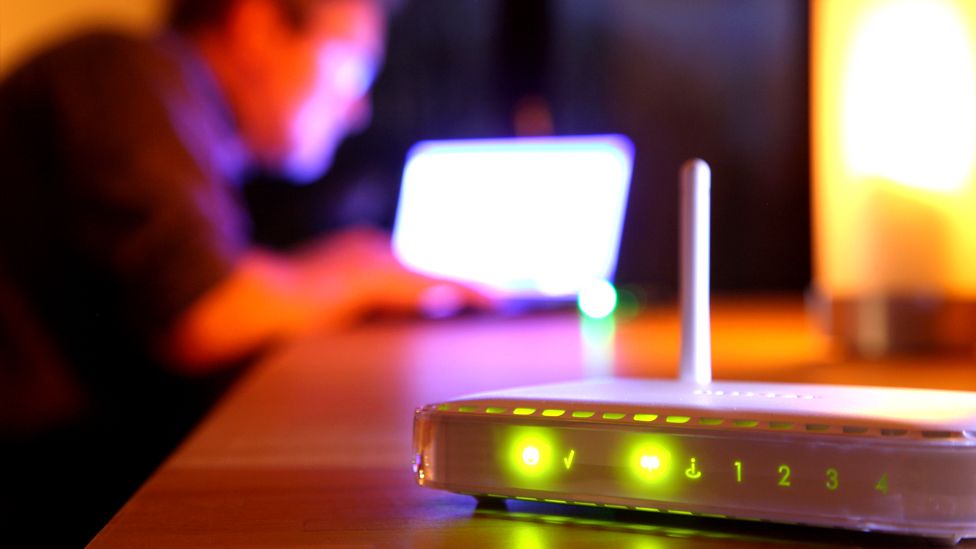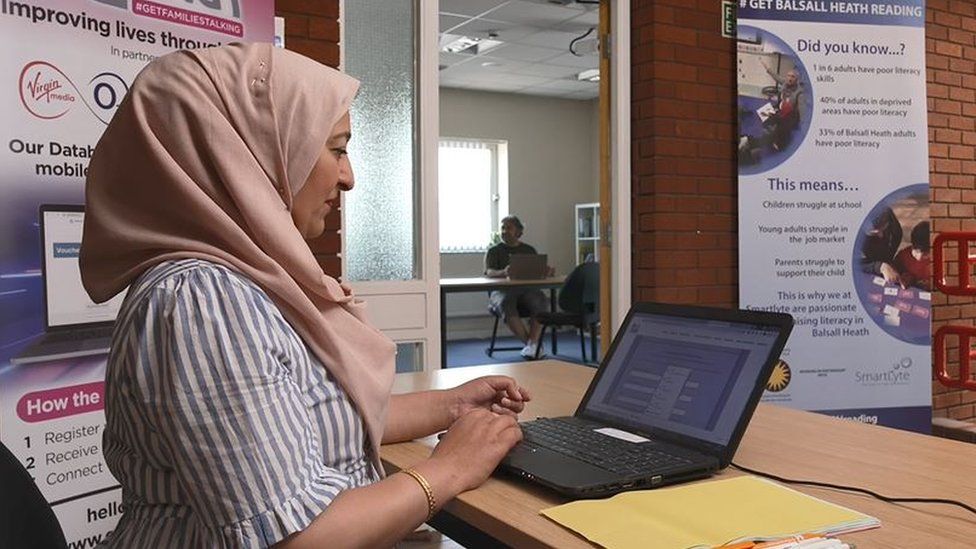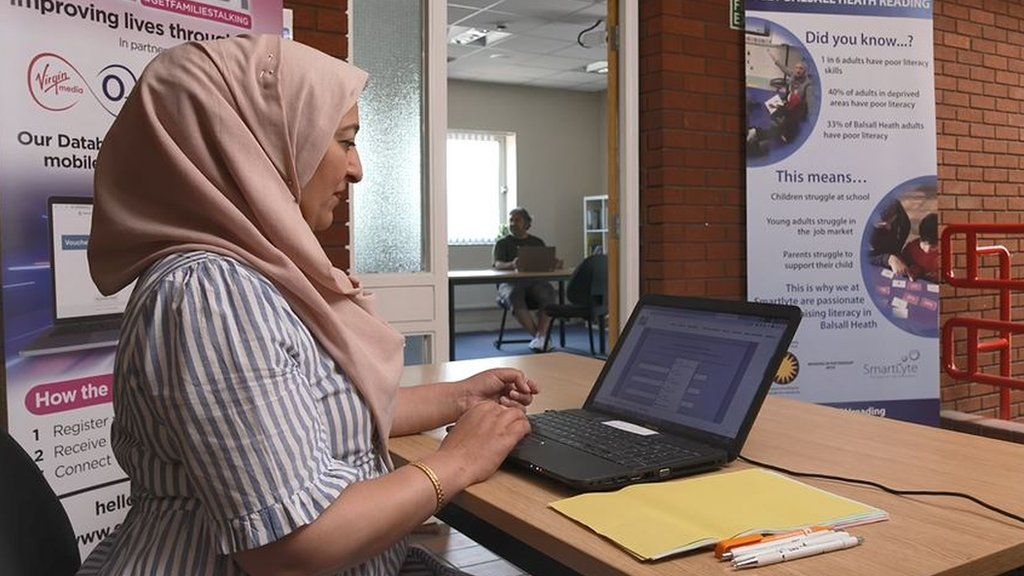Broadband must be accessible to all, peers told

Broadband should be made more accessible to people on benefits by encouraging them to use discounted deals designed for them, experts say.
They told the Lords Digital Committee’s digital exclusion hearings that cutting VAT on broadband could help people who struggle with “digital exclusion”.
Rocio Concha, of consumer group Which?, urged action to get more people on benefits using cheaper social tariffs.
The government has called on firms to raise awareness of the deals.
The high cost of living continued to put household budgets under strain, resulting in more people being “pushed” into digital exclusion, chairwoman Baroness Stowell said in her opening remarks.
Experts told the committee that digital exclusion is a term that describes an interconnected set of problems with the internet, including:
- no access to it
- not having a device to connect to it
- a lack of skills or confidence to use it
The committee heard that ending digital exclusion for key groups could generate £13.7bn in economic benefits over 10 years for only £1.4bn in cost, according to evidence from Rowlando Morgan, of economic consultancy The Centre for Economics and Business Research.
Moved to tears
“Over one in 20 households have no internet at all, either fixed line or mobile,” Helen Milner, chief executive of charity The Good Things Foundation, said in evidence.
Not all of that may be because of affordability issues, but just as food banks have faced big increases in demand, so the foundation’s databank service, which provides vouchers for internet access, has seen extremely high demand, she said.
Ms Milner said: “I’ve met a young woman who wept because we gave her a £10 top-up through the databank because she can now contact her mum in Ireland, because she had two young kids and she had absolutely no way of contacting her.
“So we’re talking about people who have very, very, very little money,”

According to telecoms regulator Ofcom, more than 9.1 million UK households (32%) were having problems paying for their phone, broadband, pay-TV and streaming bills when figures were compiled in October 2022, more than double the level of April 2021.
And 17% of households were cutting back on other spending, such as food and clothing, to afford communications services, more than four times the percentage doing so in June 2021.
More than one in three adults struggled to pay mobile phone or broadband bills, a survey by the Digital Poverty Alliance found.
‘Essential Utility’
Cheaper social tariffs are available for benefit claimants but, Ms Concha said, only 3.2% of those people who qualify for a social tariff use them, and most were simply not aware they exist.
“Access to the internet is an essential utility in today’s world, as important as having access to water, gas and electricity,” Ms Concha said.
She argued that data should be exempt from VAT, like other utilities, such as energy and water, are for domestic users.
VAT is still charged on social tariffs and removing it would be relatively inexpensive compared to the potential benefits, the committee was told.
Industry groups have supported similar moves.
The committee also heard that consumers not on social tariffs were facing above-inflation price increases, some as high as 17%.
It was also told that financially vulnerable people needed to be able to switch contract without financial penalty, and should not be compelled to pay these increases.
Science Secretary Michelle Donelan recently urged telecoms bosses to reconsider the price rises.
Committee member Baroness Harding, the former chief executive of TalkTalk, asked if social tariffs were good enough, and Ms Milner suggested there should be a standard one.
Related Topics
-
-
5 April 2022

-
-
-
26 July 2022

-

